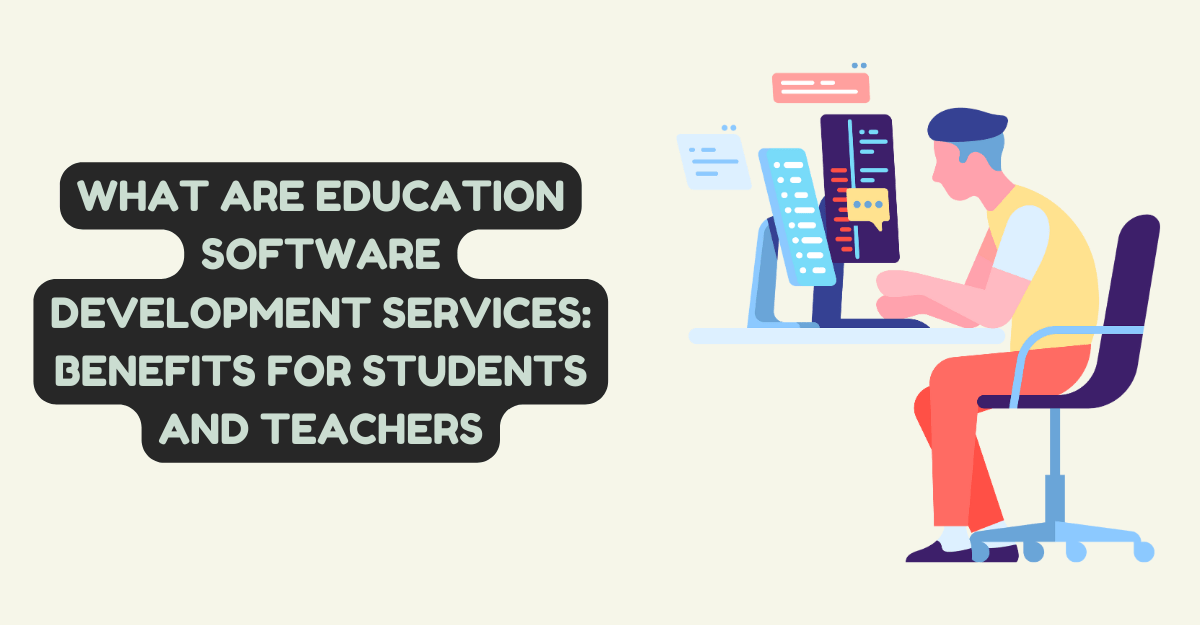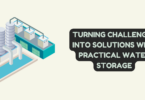
What Are Education Software Development Services: Benefits For Students And Teachers
The traditional classroom, once a static environment confined by textbooks and lectures, is undergoing a radical transformation. Education software development services are at the forefront of this revolution, creating a dynamic and personalized learning experience that empowers both students and teachers.
This article delves into the world of education software development services, exploring the vast array of tools available, the profound benefits they offer to students and teachers, and the exciting possibilities they hold for education’s future.
Unveiling the Powerhouse: A Spectrum of Education Software Solutions
Education software development services encompass a diverse range of technological tools specifically designed to enhance the learning process. Here’s a closer look at some of the most impactful solutions:
- Learning Management Systems (LMS): These robust platforms act as the central hub for online courses. Imagine a virtual classroom where students access course materials, complete assignments, take assessments, and connect with instructors and peers – all within a user-friendly online environment. LMS solutions offer features like grade management, discussion forums, calendar integration, and automated notifications, streamlining the entire learning experience for both students and educators.
- Mobile Learning Apps: The ubiquitous smartphone or tablet becomes a powerful learning companion with the advent of mobile learning apps. These apps provide on-demand access to educational content, from bite-sized video lectures and interactive quizzes to downloadable resources and practice tests. Mobile learning apps cater to the ever-connected generation, allowing students to learn on the go, during commutes, or at their own convenience.
- Adaptive Learning Platforms: Imagine a learning platform that adjusts to your individual needs – that’s the magic of adaptive learning. These intelligent systems employ advanced algorithms to analyze a student’s strengths and weaknesses, tailoring the learning path accordingly. By focusing on areas requiring improvement and offering additional support where needed, adaptive learning personalizes education, ensuring students master concepts before moving on.
- Gamified Learning Experiences: Learning doesn’t have to be a chore. Gamified learning platforms incorporate game mechanics like points, badges, leaderboards, and progress bars to transform the educational experience into a captivating journey. Students are intrinsically motivated to complete tasks, conquer challenges, and climb the leaderboard, fostering a sense of accomplishment and boosting knowledge retention.
- Virtual Reality (VR) and Augmented Reality (AR) Applications: These cutting-edge technologies are revolutionizing the way students interact with learning materials. Imagine dissecting a frog in virtual reality, exploring the pyramids of Egypt in augmented reality, or visualizing complex scientific concepts in a 3D environment. VR and AR applications create immersive experiences that bring learning to life, fostering deeper understanding and engagement.
- Learning Analytics and Data Visualization Tools: Data is a powerful tool in education. Learning analytics platforms collect and analyze student data from various sources, including assessments, assignments, and online interactions. This data is then translated into user-friendly visualizations, providing educators with valuable insights into student performance, learning styles, and areas requiring intervention. By leveraging data, teachers can personalize instruction, identify struggling students early on, and create a more effective learning environment for all.
This is just a glimpse into the vast array of education software development services. As technology continues to evolve, we can expect even more innovative solutions to emerge, further enriching the learning experience.
Benefits for Students: A Personalized Learning Powerhouse
Education software development services are transforming the way students learn, offering a multitude of benefits:
- Personalized Learning Paths: One-size-fits-all education is a thing of the past. Adaptive learning platforms and intelligent tutoring systems analyze student strengths and weaknesses, creating personalized learning paths. Students can focus on specific areas requiring improvement, receive targeted support, and progress at their own pace.
- Enhanced Engagement and Motivation: Learning doesn’t have to be passive. Interactive features, gamification elements, and captivating multimedia content, from simulations and animations to interactive exercises and virtual labs, make learning dynamic and engaging. Students are more likely to be actively involved in the learning process, leading to improved information retention and a deeper understanding of concepts.
- Accessibility and Flexibility: Gone are the geographical and time constraints of traditional classrooms. Educational apps and online platforms empower students to learn anytime, anywhere. This is particularly beneficial for students with busy schedules, those in remote locations, or those who require a more flexible learning approach due to personal circumstances.
- Self-paced Learning and Ownership: Students are no longer passive recipients of information. Educational software allows them to control the pace of their learning by revisiting previous lessons, rewinding lectures, taking practice quizzes, or repeating challenging activities as needed. This fosters a sense of ownership and empowers students to become independent learners, taking charge of their educational journey.
- Improved Collaboration and Communication: Education software often features robust communication tools that facilitate interaction between students and teachers, as well as peer-to-peer collaboration. Students can work on group projects virtually, participate in online discussions, and share resources with classmates, fostering teamwork skills and promoting a sense of community within the learning environment.
- Real-world Applications and Deeper Understanding: Educational software can create simulations and scenarios that mimic real-world situations. Imagine practicing surgery in a virtual reality simulation or managing a virtual business in a gamified learning experience. These tools allow students to apply concepts to practical settings, making learning more meaningful and fostering a deeper understanding of the material.
- Immediate Feedback and Personalized Support: Many educational applications provide students with instant feedback on their assessments and activities. This allows them to identify areas requiring improvement and adjust their learning strategies on the go. Additionally, some platforms offer personalized support features, such as AI-powered chatbots that answer student questions, offer targeted hints, or connect them with human tutors for additional assistance.
- Catering to Diverse Learning Styles: Education software development services cater to a variety of learning styles. Whether a student is visual, auditory, or kinesthetic, these tools offer a diverse range of learning experiences. Students can learn through multimedia presentations, interactive exercises, hands-on AR/VR simulations, or audio podcasts, allowing them to grasp concepts in a way that best suits their individual learning preferences.
The Benefits for Teachers: A Toolkit for Empowerment
Education software development services are not just for students. Teachers, too, reap a multitude of benefits from these innovative tools:
- Streamlined Administration and Assessment: Imagine spending less time grading papers and more time focusing on one-on-one interaction with students. LMS platforms automate tasks like grading multiple-choice questions, tracking student progress through course modules, and managing course materials, freeing up valuable time for teachers to provide personalized instruction and feedback.
- Enhanced Lesson Planning and Delivery: The vast library of digital resources available through educational software development services empowers teachers to create engaging and effective lesson plans that cater to diverse student needs. Interactive tools like simulations, animations, and online quizzes can be readily integrated into lessons, making learning more dynamic and interactive. Additionally, customizable learning modules allow teachers to tailor their approach based on the specific learning objectives and student demographics within the classroom.
- Differentiation Made Easy: With personalized learning tools at their disposal, teachers can effectively differentiate instruction. Imagine catering to individual student needs within a single classroom. Adaptive learning platforms and intelligent tutoring systems allow teachers to identify student strengths and weaknesses, providing targeted support and differentiated learning activities to address the specific needs of each student.
- Real-time Performance Data and Actionable Insights: Educational software can provide teachers with valuable data on student progress in real-time. Imagine being able to identify students who are struggling with a specific concept or those who are excelling and may require more challenging material. Learning analytics platforms provide educators with these insights, allowing for data-driven decision-making and adjustments in teaching strategies to ensure all students achieve their learning goals.
- Improved Communication and Collaboration: Educational platforms facilitate streamlined communication between teachers, students, and parents. Imagine instant messaging features within the LMS platform or online discussion forums specifically designed for course-related topics. These tools foster a more collaborative learning environment and promote transparency in the learning process, allowing parents to stay informed about their child’s progress and teachers to easily address student concerns.
- Reduced Paperwork and Administrative Burden: Digital tools eliminate the need for paper-based assignments and grading. Imagine automated grading of online quizzes or collaborative document creation tools that allow for online feedback and revision. These features significantly reduce administrative tasks, allowing teachers to spend more time interacting with students and focusing on the core aspects of teaching.
- Feedback Opportunities and Professional Development: Educational software can provide teachers with valuable insights into student understanding through interactive activities, surveys, and online quizzes. Imagine analyzing student responses to gauge their comprehension of a specific concept or identify areas where the lesson plan may require adjustments. These tools allow teachers to gather feedback and continuously improve their teaching approach, fostering a growth mindset and enhancing professional development.
The Future of Education: A Collaborative Journey
Education software development services hold immense potential for transforming the educational landscape. By creating a more personalized, engaging, and data-driven learning environment, these tools empower both students and teachers. As educational software development continues to evolve, we can expect even more innovative solutions to emerge, blurring the lines between traditional classrooms and interactive learning experiences.
However, it is important to remember that technology is a tool, and its effectiveness hinges on its thoughtful implementation. The human element remains paramount, with teachers acting as facilitators and guides, fostering a love of learning and critical thinking skills in their students. The future of education lies in a collaborative effort, where technology and teachers work in harmony to create a dynamic and empowering learning experience for all.






